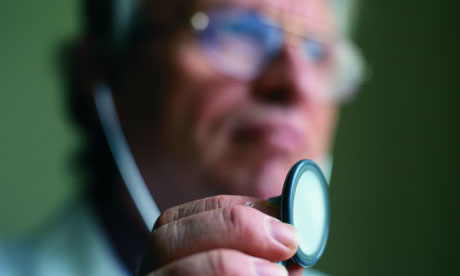But some predictions are false, no matter how much we wish they were true writes Tim Harford in The FT
It's 1963. A young psychologist named Bob Rosenthal conducts an experiment in which his assistants place rats in mazes, and then time how long it takes the rats to find the exit. They are housed in two cages: one for the smartest rats and one for rodent mediocrities.
The assistants are not surprised to find that the smart rats solve the mazes more quickly. Their supervisor is — because he knows that in truth, both cages contain ordinary lab rats.
Prof Rosenthal — he would go on to chair Harvard’s psychology department — eventually concluded that the secret ingredient was the expectations of his assistants: they treated the “special” rats with care and handled the “stupid” rats with disdain. When we expect the best, we get the best — even if we expect it of a rat.
The story is well told in Rutger Bregman’s new book Humankind. His interest in Prof Rosenthal’s work is not hard to explain. Mr Bregman argues that people are fundamentally friendly and self-motivated. But he also argues that when we expect more of each other then, like the rats, we rise to the occasion. If schools, police or corporations believe that people are sluggish, dishonest or lazy, they may be proved right.
Prof Rosenthal coined the phrase “the Pygmalion effect”, the name inspired by Ovid’s account of a sculptor whose infatuation with a statue brings it to life. But the Pygmalion effect is just one example of what the sociologist Robert K. Merton called “self-fulfilling prophecies”.
There’s the placebo effect and its malign twin, the “nocebo effect”: if the doctor tells you a drug may produce side effects, some patients feel those side effects even if given an inert pill.
Self-fulfilling prophecies are a staple of economics. A recession can be caused by the expectation of a recession, if people hesitate to spend, hire or invest. And a bank run is the quintessential self-fulfilling prophecy.
The self-defeating prophecy is just as fascinating, and a problem that bedevils economic forecasters. If I credibly predict a surge in the price of oil next year, the surge will happen immediately as oil traders buy low now to sell high later. The forecast goes awry precisely because people thought it was accurate.
The coronavirus era has brought us a vivid example. A vocal minority argues that Covid-19 is not much worse than the influenza we ignore every winter, so both mandatory lockdowns and voluntary precautions have been unnecessary.
A glance at the data gives that argument a veneer of plausibility. The UK has suffered about 65,000 excess deaths during the first wave of the pandemic, and 25,000-30,000 excess deaths are attributed to flu in England alone during bad flu seasons.
Is the disparity so great that the country needed to grind to a halt?
The flaw in the argument is clear: Covid was “only” twice as bad as a bad flu season because we took extreme measures to contain it. The effectiveness of the lockdown is being used as an argument that the lockdown was unnecessary. It is frustrating, but that is the nature of a self-defeating prophecy in a politicised environment.
One might say the same thing about Fort Knox. Nobody has ever tried to steal the gold, so why bother with all the guards?
Self-fulfilling prophecies can be pernicious; writing in 1948, Prof Merton focused on racism. For example, some said African Americans were strikebreakers who thus should not be allowed to join trade unions. Prof Merton pointed out that their exclusion from unions was the reason they had been strikebreakers. Sexism also drips with self-fulfilling prophecies. Since our leaders were usually straight white men in the past, it is all too easy to favour such people for leadership roles in the future.
Such prophecies can also be harnessed for good. Bob Rosenthal took his ideas into schools, where he found that what is true of rats being respectfully handled is just as true of pupils. Persuade a teacher that a pupil has hidden talents and the child will soon flourish.
Yet one can put too much faith in the self-fulfilling prophecy. Fervent excitement about the dizzy ascent of Tesla’s share price should help the company sell cars and raise funds but, in the long run, the value of a Tesla share will be determined by Tesla’s profitability.
Self-fulfilling prophecies are particularly tempting for politicians. It is all too easy to paint a project such as Brexit in Tinker Bell terms: if we clap our hands and believe in Brexit, it will not disappoint. Conveniently, all setbacks can be blamed on “Remoaners”.
The fact is that some things are false no matter how fervently we wish them to be true. We often plunge into projects with rosy views of how long they will take and how successful they will be, but our optimism only gets us started. It does not finish the job.
I think we should try to treat each other with kindness and respect, and not just because it worked for Bob Rosenthal’s rats. But there are limits to the power of sheer positive thinking. Even in the cartoons, Wile E. Coyote eventually feels the tug of gravity.
'People will forgive you for being wrong, but they will never forgive you for being right - especially if events prove you right while proving them wrong.' Thomas Sowell
Search This Blog
Showing posts with label placebo. Show all posts
Showing posts with label placebo. Show all posts
Friday, 17 July 2020
Monday, 22 May 2017
The Rise of Open-Label Placebos
Nic Fleming in The Guardian
Linda Buonanno had suffered 15 years of intense cramps, bloating, diarrhoea and pain she describes as “worse than labour”. She was willing to try anything to get relief from her irritable bowel syndrome (IBS) and leapt at the chance to take part in a trial of an experimental new therapy. Her hope turned to disappointment, however, when the researcher handed her a bottle of capsules he described as placebos containing no active ingredients.
Nonetheless, she took the pills twice daily. Four days later, her symptoms all but vanished. “I know it sounds crazy,” says Buonanno, of Methuen, Massachusetts. “I felt fantastic. I knew they were just sugar pills, but I was able to go out dancing and see my friends again.”
Placebos have a reputation problem. It is widely believed they are only effective when those taking them are deceived into thinking they are taking real drugs. As such, prescribing dummy or fake treatments is unethical. Yet in Buonanno’s case there was no deception. And she is not alone. A review of five studies, involving 260 patients, published last month found that “open-label” placebos – those that patients know contain no active medication – can improve symptoms in a range of conditions. This growing body of evidence raises a number of important questions. How do open-label placebos work? Which conditions do they work for? And should doctors prescribe them?
Dr Jeremy Howick first began asking about placebos when a herbal doctor suggested he drink ginger tea to combat cat allergy symptoms. He was highly sceptical, but three days later his runny noses, sneezing and insomnia stopped. Twenty years later, Howick is a clinical epidemiologist at the University of Oxford. Last month, his group published a review of previous research that has compared the effects of giving patients open-label placebos with no treatment.

The first was led by Professor Ted Kaptchuk, of Harvard Medical School, who gave 80 IBS patients, including Buonanno either no treatment or open-label placebo pills. He found those who took placebos for three weeks experienced greater improvements in symptoms, including less severe pain. Sadly for Buonanno, when the study ended she was unable to obtain further effective placebos and her symptoms returned.
In another of the studies in Howick’s review, chronic lower back pain patients openly given dummy pills to add to their existing treatments reported an average 30% pain reduction. In the three other review studies, people given open-label pills reported reduced symptoms for depression, lower back pain, and attention deficit hyperactivity disorder.
Howick acknowledges that a limitation of these trials is that participants knew whether they were getting placebos or not being treated. Yet other research has demonstrated placebos trigger real physiological changes. They are known to increase the circulation of endorphins, the body’s own natural painkillers, and of dopamine, a neurotransmitter associated both with pleasurable activities and perceptions of pain.
Placebos appear to work only in certain circumstances. Research suggests they can be effective when the brain and perception can help modulate symptoms such as pain, fatigue and itch. Dummy pills also vary in their effectiveness according to genetics. A 2012 study found IBS patients differ in their sensitivity to placebos based on the variants of a gene called COMT they had, probably because this can affect their dopamine levels.
So if ethically given placebos can work, surely doctors should be prescribing them? “I’m not advocating doctors handing them out like Smarties,” says Howick, whose book Doctor You, about overmedicalisation and the body’s self-healing capabilities, will be published later this year. “I do think, however, that this research is telling us we should start to recognise the benefits of doctors being realistically positive when they talk to patients.”
Kaptchuk is more enthusiastic about wider open-label placebo use, despite antipathy among doctors. “If enough of these studies have positive results in different conditions, I hope we can convince the medical community that there’s something useful here.”

The placebo effect: is there something in it after all?
That might be more likely once more work has been done to explain how open-label placebos work. One hypothesis is that patients who have previously got better after being treated by trusted doctors might experience subconscious boosts to levels of endorphins and neurotransmitters, thereby improving their symptoms. This is the conditioning effect, made famous by the Russian psychologist Ivan Pavlov, who trained dogs to salivate when they heard a buzzer they associated with being fed, even when no food was presented.
Another possibility is that patients might be told that placebos have worked before for people with their conditions, leading to a conscious expectation of improvements, resulting in chemical releases that relieve their symptoms.
Both of these probably play a role, yet Kaptchuk says neither can fully explain the experiences of participants in his IBS study, most of whom had been through multiple failed treatments. He thinks a relatively recent theory called embodied cognition is closer to the mark. This suggests that the possibility of improvement can trigger subconscious signals to pass between different parts of the body, resulting in chemical releases that alleviate symptoms.
Buonanno, meanwhile, has some thoughts on the potential mechanisms of open-label placebos, but is more interested in the fact that they have worked for her. Since late last year, Kaptchuk and his gastroenterologist colleague Anthony Lembo have been prescribing them to her as a patient. “I feel perfect,” she says. “It’s like I was never sick. I think it’s something to do with having confidence in my doctors, in the way they tell me it’s going to work, having hope and really wanting something to work. I don’t really understand it. But what I do know is that, after 23 years, I’ve got my life back.”
Linda Buonanno had suffered 15 years of intense cramps, bloating, diarrhoea and pain she describes as “worse than labour”. She was willing to try anything to get relief from her irritable bowel syndrome (IBS) and leapt at the chance to take part in a trial of an experimental new therapy. Her hope turned to disappointment, however, when the researcher handed her a bottle of capsules he described as placebos containing no active ingredients.
Nonetheless, she took the pills twice daily. Four days later, her symptoms all but vanished. “I know it sounds crazy,” says Buonanno, of Methuen, Massachusetts. “I felt fantastic. I knew they were just sugar pills, but I was able to go out dancing and see my friends again.”
Placebos have a reputation problem. It is widely believed they are only effective when those taking them are deceived into thinking they are taking real drugs. As such, prescribing dummy or fake treatments is unethical. Yet in Buonanno’s case there was no deception. And she is not alone. A review of five studies, involving 260 patients, published last month found that “open-label” placebos – those that patients know contain no active medication – can improve symptoms in a range of conditions. This growing body of evidence raises a number of important questions. How do open-label placebos work? Which conditions do they work for? And should doctors prescribe them?
Dr Jeremy Howick first began asking about placebos when a herbal doctor suggested he drink ginger tea to combat cat allergy symptoms. He was highly sceptical, but three days later his runny noses, sneezing and insomnia stopped. Twenty years later, Howick is a clinical epidemiologist at the University of Oxford. Last month, his group published a review of previous research that has compared the effects of giving patients open-label placebos with no treatment.

The first was led by Professor Ted Kaptchuk, of Harvard Medical School, who gave 80 IBS patients, including Buonanno either no treatment or open-label placebo pills. He found those who took placebos for three weeks experienced greater improvements in symptoms, including less severe pain. Sadly for Buonanno, when the study ended she was unable to obtain further effective placebos and her symptoms returned.
In another of the studies in Howick’s review, chronic lower back pain patients openly given dummy pills to add to their existing treatments reported an average 30% pain reduction. In the three other review studies, people given open-label pills reported reduced symptoms for depression, lower back pain, and attention deficit hyperactivity disorder.
Howick acknowledges that a limitation of these trials is that participants knew whether they were getting placebos or not being treated. Yet other research has demonstrated placebos trigger real physiological changes. They are known to increase the circulation of endorphins, the body’s own natural painkillers, and of dopamine, a neurotransmitter associated both with pleasurable activities and perceptions of pain.
Placebos appear to work only in certain circumstances. Research suggests they can be effective when the brain and perception can help modulate symptoms such as pain, fatigue and itch. Dummy pills also vary in their effectiveness according to genetics. A 2012 study found IBS patients differ in their sensitivity to placebos based on the variants of a gene called COMT they had, probably because this can affect their dopamine levels.
So if ethically given placebos can work, surely doctors should be prescribing them? “I’m not advocating doctors handing them out like Smarties,” says Howick, whose book Doctor You, about overmedicalisation and the body’s self-healing capabilities, will be published later this year. “I do think, however, that this research is telling us we should start to recognise the benefits of doctors being realistically positive when they talk to patients.”
Kaptchuk is more enthusiastic about wider open-label placebo use, despite antipathy among doctors. “If enough of these studies have positive results in different conditions, I hope we can convince the medical community that there’s something useful here.”

The placebo effect: is there something in it after all?
That might be more likely once more work has been done to explain how open-label placebos work. One hypothesis is that patients who have previously got better after being treated by trusted doctors might experience subconscious boosts to levels of endorphins and neurotransmitters, thereby improving their symptoms. This is the conditioning effect, made famous by the Russian psychologist Ivan Pavlov, who trained dogs to salivate when they heard a buzzer they associated with being fed, even when no food was presented.
Another possibility is that patients might be told that placebos have worked before for people with their conditions, leading to a conscious expectation of improvements, resulting in chemical releases that relieve their symptoms.
Both of these probably play a role, yet Kaptchuk says neither can fully explain the experiences of participants in his IBS study, most of whom had been through multiple failed treatments. He thinks a relatively recent theory called embodied cognition is closer to the mark. This suggests that the possibility of improvement can trigger subconscious signals to pass between different parts of the body, resulting in chemical releases that alleviate symptoms.
Buonanno, meanwhile, has some thoughts on the potential mechanisms of open-label placebos, but is more interested in the fact that they have worked for her. Since late last year, Kaptchuk and his gastroenterologist colleague Anthony Lembo have been prescribing them to her as a patient. “I feel perfect,” she says. “It’s like I was never sick. I think it’s something to do with having confidence in my doctors, in the way they tell me it’s going to work, having hope and really wanting something to work. I don’t really understand it. But what I do know is that, after 23 years, I’ve got my life back.”
Thursday, 21 March 2013
The placebo effect is present in every medical intervention
The western concept of an autonomous self does not account for how a doctor's beliefs can influence the patient's health

'A contributing factor of the effectiveness of the placebo is the reputation, charisma and convictions of the doctor administrating it.' Photograph: Stockbyte/Getty Images
A recently published study declared that 97% of 783 GPs admitted that they had recommended a sugar pill or a treatment with no established efficacy. This is not a scandal because a placebo is an effective, proven intervention that stimulates our bodies' own capacity to heal itself.
The placebo effect is present in every medical intervention, not just those procedures, such as sugar pills, where the placebo effect is the only known agent at work. To understand exactly how it works would be the equivalent of understanding in full how our mind influences our physical heath, and I expect we still have plenty more to discover in that area.
The concept of the self being an autonomous being is a deeply held belief in western civilisation, but we affect each other all the time. If our doctors wholeheartedly believe that the treatments they are giving us have every chance of working, we are more likely to believe it too. I don't know if this is the effect of mirror neurons or quantum physics, but it happens. It's not that the doctor is just a technician treating our disease, but is also a person who influences us. Bedside manner is more than an optional add-on luxury. If a doctor's influence makes us feel more positive about our health, it will make us more optimistic, and our optimism has a direct effect on our health. For example, research has shown our expectations about recuperation or complications significantly serve as self-fulfilling prophecies for how we recover after surgery.
In 1955, the inventor of the double-blind design form of testing, Henry K Beecher, discovered that 35% of patients found satisfactory relief from a placebo. It is thought that a contributing factor of the effectiveness of the placebo is the reputation, charisma and convictions of the doctor administrating it, as these affect a patient's belief system. In Beecher's study, this might have been missing, because the dispenser of the drug would have known that the drug might just be a sugar pill – so this 35% may be a conservative estimate of the efficacy of placebo.
These days, when testing the placebo effect, we can get the MRI scanner in on the act. Tor D Wager conducted a study in 2004 with a placebo cream he told the subjects would take away pain. He then inflicted pain on them and watched them in the scanner. Those who had been given the cream (the control group had nothing) showed "placebo effect patterns" in the prefrontal cortex. This part of the brain activates when anticipating pain relief and triggers a reduction of activity in pain-sensing areas of the brain. Wager suggests that this interplay within the prefrontal cortex may also trigger a release of pain-relieving opioids in the midbrain.
So when you look your toddler in the eye and kiss his boo boo better, you are probably setting this process into play. You could say, "let me trigger a reduction in your pain sensing brain activity", but "mummy kiss it better" works fine.
Thursday, 15 November 2012
Scientists find 'fidelity' hormone which keeps men from straying
The chemical oxytocin helped men in romantic relationships keep their distance from strangers they might find attractive.
They stayed about four to six inches further away when approaching or being approached by good-looking women than those given a dummy drug.
Dubbed the 'cuddle drug', oxytocin is naturally made in the body and is involved in sex, sexual attraction, trust and confidence.
It is released into the blood during labour - triggering the production of breast milk - and floods the brain during breastfeeding, helping mother and baby bond.
Researchers said their findings published in The Journal of Neuroscience suggest oxytocin could promote fidelity. In contrast oxytocin had no effect on single men.
Dr René Hurlemann, of Bonn University in Germany, said: "Previous animal research in prairie voles identified oxytocin as major key for monogamous fidelity in animals.
"Here we provide the first evidence that oxytocin may have a similar role for humans."
In the study his team administered oxytocin or a placebo via a nasal spray to fifty-seven healthy and heterosexual men, about half of whom were in monogamous relationships.
Forty-five minutes later the participants were introduced to a female experimenter they later described as "attractive".
As the woman moved towards or away from the volunteers the men were asked to indicate when she was at an "ideal distance" as well as when she moved to a place that felt "slightly uncomfortable."
Dr Hurlemann said: "Because oxytocin is known to increase trust in people we expected men under the influence of the hormone to allow the female experimenter to come even closer - but the direct opposite happened."
The effect of oxytocin on the monogamous men was the same regardless of whether the beauty maintained eye contact or averted her gaze - or if the men were the ones approaching or withdrawing from her.
Oxytocin also had no effect on the men's attitude towards the woman - both those who received the hormone and the placebo rated her as being equally attractive.
In a separate experiment the researchers found oxytocin had no effect on the distance men kept between themselves and a male experimenter.
They said future studies are needed to determine exactly how oxytocin might act on the brain to affect behaviour.
Psychiatrist Professor Larry Young, of Emory University in Atlanta who was not involved in the study, said the hormone could be nature's way of encouraging fathers not to stray.
He said: "In monogamous prairie voles we know oxytocin plays an important role in the formation of the pair bond.
"This study suggests the general role of oxytocin in promoting monogamous behaviour is conserved from rodents to man."
Subscribe to:
Comments (Atom)
